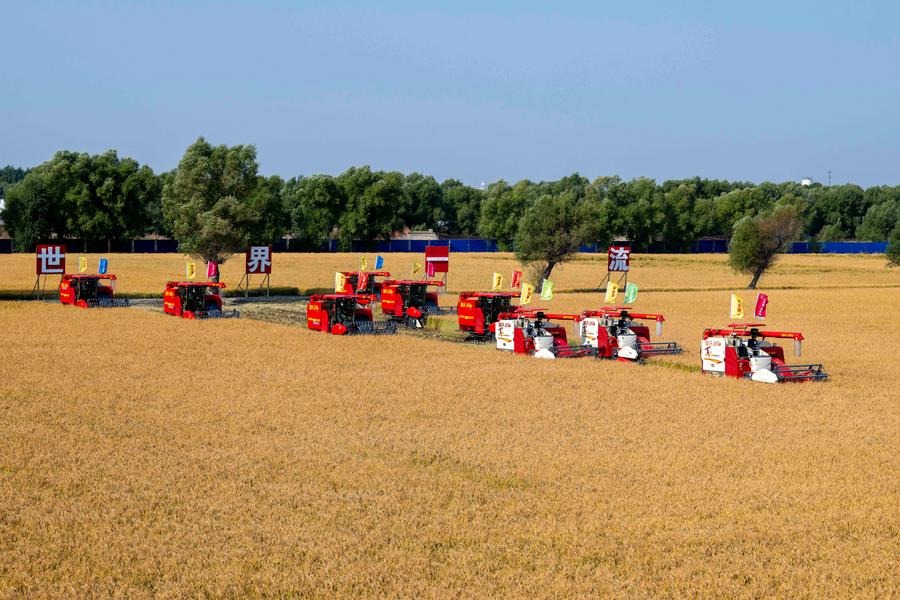Scientists propose new model to sustain global carbon cycle simulation

LANZHOU -- A simple and robust modeling scheme has been proposed for the precise assessment of the gross primary productivity (GPP) of terrestrial ecosystems, according to Lanzhou University.
The newly proposed simple and effective ecosystem light-use efficiency (eLUE) model marked a major breakthrough in the sector of global GPP remote sensing estimation study, said the university.
The joint research team is composed of researchers from Lanzhou University in China, as well as those from Japan, Australia, and other countries. The study has been published in the journal IEEE Transactions on Geoscience and Remote Sensing.
GPP through photosynthesis is a crucial ecosystem function that significantly influences food security, the carbon cycle, and climate change. The GPP of terrestrial ecosystems is the largest component in the global carbon cycle.
"Given the context of climate change and carbon neutrality endeavors, the precise assessment of GPP is of great significance for understanding the global carbon cycle process and advancing climate governance," said Ma Xuanlong, a professor at the College of Earth and Environmental Sciences of Lanzhou University and leader of the study.
Conventional remote sensing estimation methods have considerable uncertainties and restrict the precise accounting of global carbon budgets and the evaluation of policy effects.
To address this challenge, the study team proposed this simple yet effective eLUE model to GPP. Researchers innovatively took the light energy utilization efficiency at the ecosystem scale as the core of remote sensing inversion. They constructed a new global GPP estimation framework that is entirely based on remote sensing observations.
"This model features simple parameters, efficient calculation and controllable error, providing a new method and tool for global carbon cycle research and carbon budget accounting," Ma said.
FLUXNET is a global network of micrometeorological tower sites. The cross-validation results based on 120 global FLUXNET sites showed that the eLUE model demonstrated excellent accuracy and stability.
This new model provides key technical support for the dynamic monitoring of the carbon sequestration capacity of ecosystems. Based on this model, the team constructed a global GPP dataset over the 2001-2024 period, as noted by Ma.
"This new study provides support for global carbon cycle simulation and ecosystem assessment. Moreover, it offers a scientific basis for carbon budget accounting and drafting the climate governance strategies," Ma said.
- Scientists propose new model to sustain global carbon cycle simulation
- Chinese scientists warn of extreme drought impact on global grassland, shrubland ecosystems
- China renews alerts for rainstorms, strong winds
- Xizang achieves full heating coverage above 5,000 meters
- Where mountains meet the sea
- Former envoy pushes Sino-EU cooperation on climate change




































